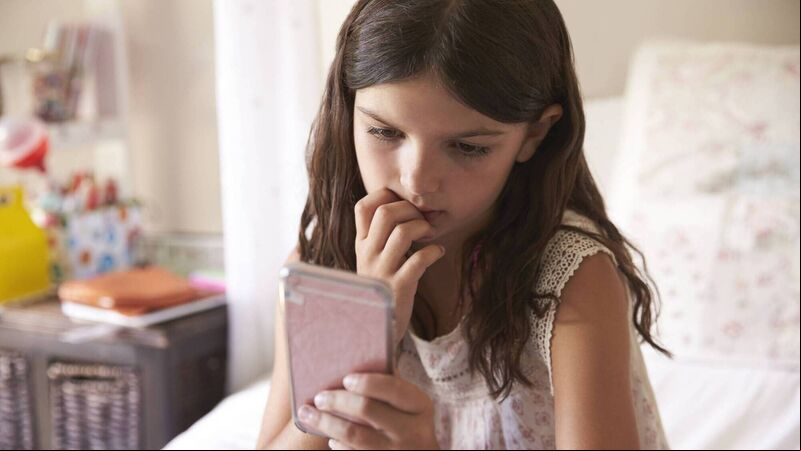Online safety should be taught in schools

The internet is for everyone and although it is a fantastic resource, it isn’t designed for children, so says Cliodhna Purdue of Barnardos. Picture: stock

The internet is for everyone and although it is a fantastic resource, it isn’t designed for children, so says Cliodhna Purdue of Barnardos. Picture: stock
A TOTAL of 97% of parents and 93% of teachers think online safety should be a core part of the primary school curriculum, with over 50% of parents saying online safety should be taught to children as young as five.
Barnardos believe in early intervention and as such, we wholeheartedly agree with the parents and teachers who recently answered our Online Safety survey.
While many schools do great work and promote online safety, particularly around Safer Internet Day every February, at Barnardos we think there should be more emphasis placed on it in schools. It should form a part of the core curriculum and teachers should be required to regularly discuss children’s activities online, teaching them the skills and tools they need to be safe online.
As a former teacher, I understand the strain teachers are under and know that sometimes they are tasked with teaching solutions to societal issues in the classroom. This isn’t always fair, as there are only a certain amount of hours in the day.
However, interestingly, in our survey teachers did acknowledge the role they have in talking to children about being safe online, with 89% of teachers saying it was both a teacher’s and a parents’ role to teach children about online safety.
Curriculum pressures aside, what we do know is that online safety is important, even more so with everyone spending more time online during the Covid-19 crisis. In our frontline work with children, we often see the fall out of online behaviour. We see young boys and girls refusing to go to school or suffering from anxiety, and sometimes this change in behaviour can be traced back to online bullying, or issues online.
Reading the concerns of young people regarding online safety, they are mostly worried about an embarrassing photo or video of them being shared or going viral.
It is also clear that peer pressure and relationships play a role in online behaviour. Sometimes ignorance can be bliss, but this isn’t the case for young people these days. When you send a message to your friend, or even a potential boyfriend or girlfriend on Whatsapp, you know when they have seen it as you’ll get the blue tick. Imagine the anxiety when you know this person has seen the message, but chooses not to reply? This is called being “left on open” and can cause issues in friendship groups. One teenage girl explained “… a lot of things are organised over text, like meet ups and activities. It is hard to ask your friends, am I being excluded from a group chat?, without them thinking you are clingy or intrusive.”
It can be hard for parents to relate to this as it isn’t something they grew up with. However, instead of taking away phones or downplaying a child’s reaction to issues online, it’s important to listen to children and engage with them. Ask questions – what games or apps do they like online and why?
Try playing these games with children so you can understand how they work, how you can help put in place privacy settings or block and report any unwanted . It’s important also, to have regular check-ins and open communication so they know they can come to you if they have an issue online.
The internet is for everyone and although it is a fantastic resource, it isn’t designed for children. Young people need to learn the skills to be safe and resilient online. They need to understand how the internet works, to gain digital media literacy skills and to learn how to think critically about the information and people they meet online. Most of all, they need to learn to reflect on their own behaviour online, to ‘think before they post’, to have empathy for others and to make good choices.
In September 2019, with from Google.org, we rolled out a four year online safety programme across the country, with the aim of reaching 1,000 schools and 75,000 students. As part of this, we signpost to Be Internet Legends, a free multifaceted programme designed to teach younger children (age seven to 11 year olds) about online safety. There are family guides for parents and lesson plans for teachers and can be used as a ‘before’ or ‘after’ teaching resources to our workshops.
We have had great from Google for the programme and they agree that the Barnardos research shows a growing awareness in parents, teachers and students of the need to focus on online safety in both the classroom and at home. They recognise their responsibility as a company to ensure that the internet is accessible and used in a positive way, and by ing the Barnardos Online Safety Programme they are helping do this.
For more details about Barnardos Online Safety Programme, which can now be facilitated in the classroom or virtually, go towww.barnardos.ie/osp
Sign up to receive our weekly newsletter to be in with a chance to win prizes and see what's coming up in The Echo
18 minutes ago
John Cleary: We have prepared well for Roscommon challenge6 minutes ago
Glen Rovers squad depth to the fore in stars' absence4 minutes ago
'100% needed': Proposals to enhance Cork city’s fire service ‘welcome and long overdue’10 minutes ago
Cork city centre revamp raises concerns over one-way traffic plansHave you ed your FREE  App?
App?

It's all about Cork!
Sign up to receive our weekly newsletter to be in with a chance to win prizes and see what's coming up in The Echo
Add Echolive.ie to your home screen - easy access to Cork news, views, sport and more